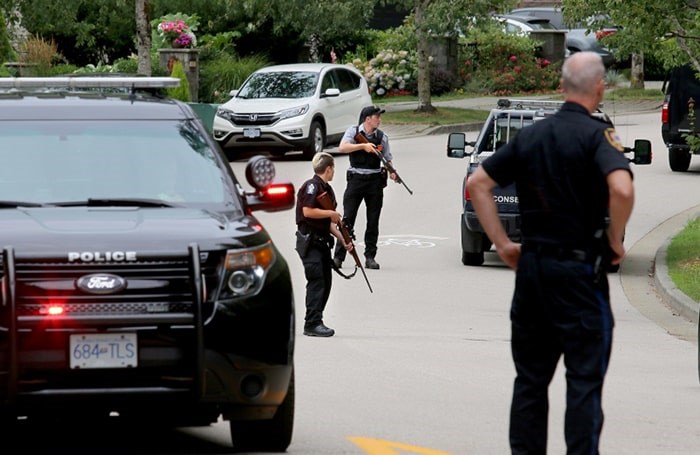A new study has found little evidence that the lethal control of black bears in British Columbia has led to a long-term reduction in human-bear conflict.
The , led by University of Victoria associate economics professor Felix Pretis and co-authored by colleagues there and at the University of British Columbia, was uploaded to Social Science Research Network’s pre-print server last week. Pre-print studies have not been peer reviewed.
The С����Ƶ Conservation Officer Service (С����ƵCOS) killed about 3,000 black bears over the course of about 67,000 conflict events spanning 2013 to 2021, according to the study. In an interview, Pretis said those numbers come from a single official database and are likely an under count of conflicts because not everyone reports them.
The economist said they did find a transitory reduction in conflict events, but over the long-term, the number of human-bear conflicts bounced back.
Annual lethal encounters have been remarkably consistent in recent years, hovering at about 500 per year since 2011, according to Lesley Fox, executive director of the non-profit group The Fur-Bearers. Last year, she said the number of black bears killed in С����Ƶ bounced up to 603, one of the highest numbers ever recorded.
“We’re caught in a cycle of killing. And the statistics show that,” said Fox.
Environmental conditions driving conflict
The study found cold spring weather and hot and dry fall conditions led to the most conflicts. An increased abundance of salmon, on the other hand, led to less conflict with humans.
When the researchers controlled for weather, human settlement density, seasonal effects and salmon abundance, they found little evidence that lethal control interventions lead to a decrease in conflict.
The evidence, they write, suggests conflict is being driven by the “availability of human food sources and a lack of natural food sources, rather than by problem black bears.”
Climate change, they added, will likely deepen the environmental conditions that lead to conflict, sparking more conflict. In turn, “new black bears will likely continue to recolonize areas where lethal control interventions previously occurred, resulting in a continuous cycle of human-black bear conflict,” the study says.
The study adds to other research that has found little success in controlling human-bear conflict through translocation or lethal measures.
Some studies have found some success in conditioning bears to leave an area with pepper spray and ; others have looked to .
A 2021 out of UС����Ƶ using computer modelling in to track bears movements around Whistler, С����Ƶ, found reducing attractants was the single most effective way to avoid conflict.
Conservation officers in 'challenging position'
The researchers acknowledged conservation officers and the agencies that manage wildlife are in a “challenging position” that requires them to ensure human safety and reduce conflict with wildlife.
Pretis said officers have to deal with questions of direct liability, and conflict situations might be getting treated on an event-by-event basis.
“Their mandate is not necessarily to reduce long-run conflict in the area,” said the economist.
A spokesperson for the С����ƵCOS did not directly respond to a request for comment. In an email, the spokesperson said communications “are limited to critical health and public safety information, as well as statutory requirements” due to the С����Ƶ government's ongoing caretaker mode after an undecided election.
Next step is to figure out 'What does work?'
In their study, Pretis and his colleagues recommend shifting away from lethal control measures and focus more on the role the human and natural environment are playing. Next, he said they plan to analyze different strategies to reduce conflict, and try to answer the question, “What does work?” he said.
Advocacy groups, the province and municipalities already have programs focus on education — either through programs like Bear Smart or going door to door to hand out flyers. But Fox said enforcement to reduce food attractants like garbage is still falling flat.
She blames part of that on officers’ reluctance to hand out tickets, either because they worry the scofflaw might not be able to pay or because they think the case will later get thrown out in court.
Fox also said more municipalities need to pass bylaws that require residents to take responsibility for attracting black bears and sending them into a spiral of human conflict.
She said the latest pre-print study is “really powerful” because it recognizes the problem is not the bears — but people.
“We’re wasting time, and we’re needlessly killing bears. It has to stop,” she said.




